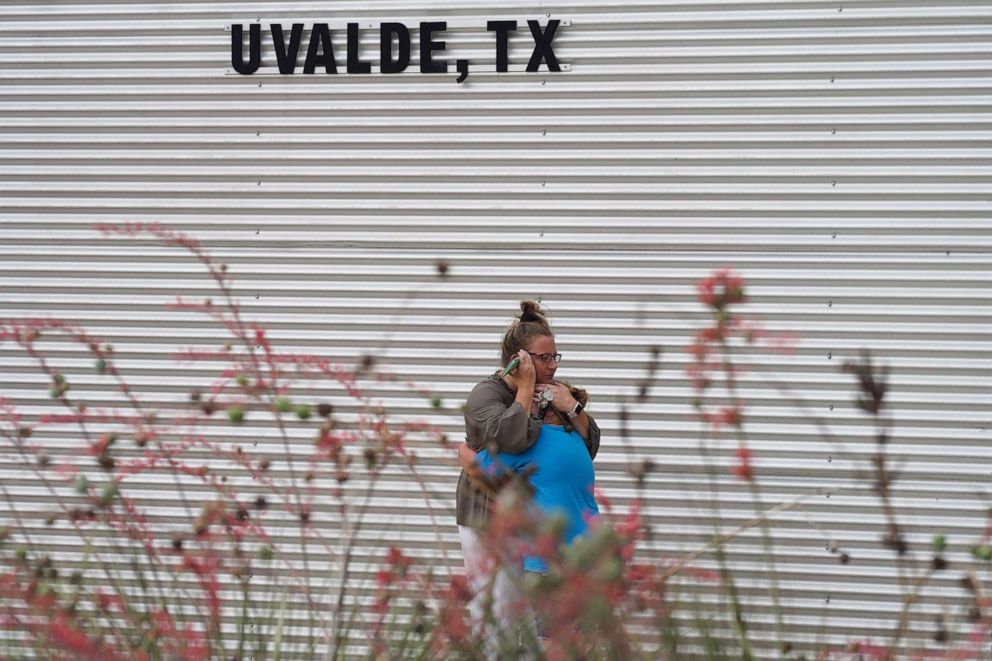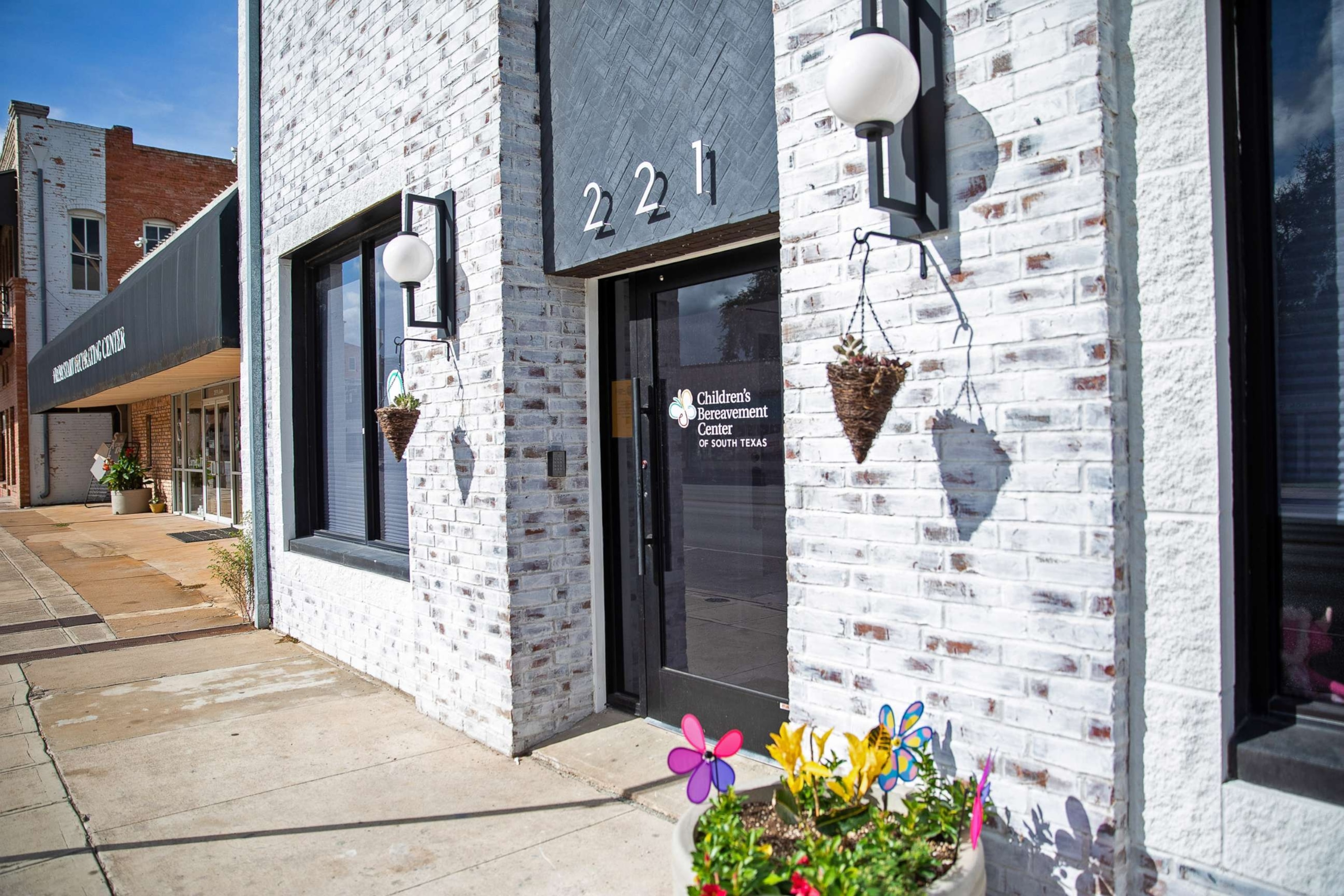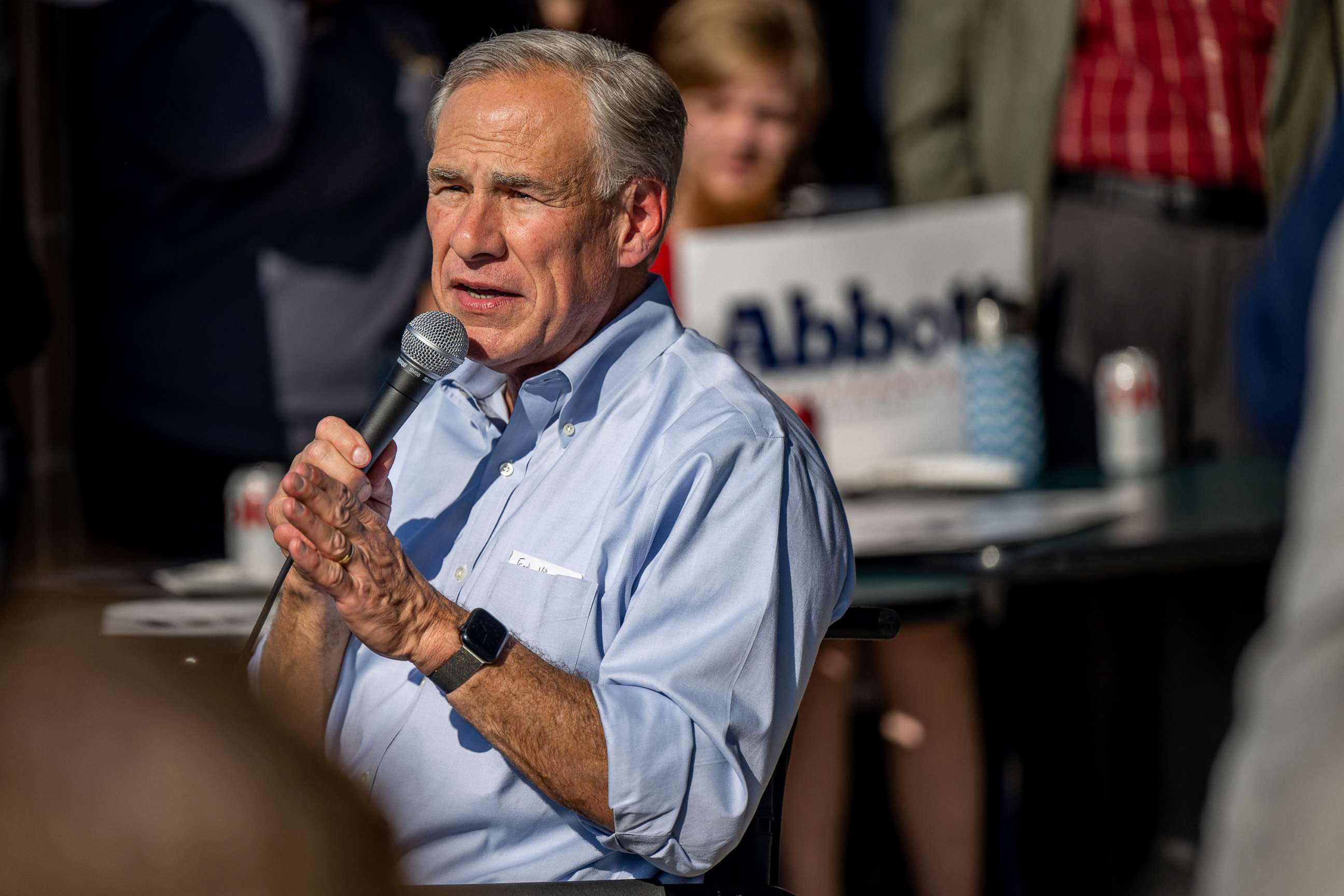Texas governor’s much-touted mental health care expansion falls short of local, state need
"It’s run by our state government, which they couldn’t give a s--- less."
A white tent looms over the grounds of the Uvalde County Fairplex, a sparse multipurpose venue that previously hosted rodeos, quinceañeras and the annual firemen's ball, now home to Texas's newest trauma center and Gov. Greg Abbott's latest self-declared success.

The Uvalde Together Resiliency Center was created in response to the shooting at Robb Elementary School, which left 19 children and two adults dead. The Republican governor authorized $5 million for its construction the same week, the symbolic centerpiece of his administration's response to longstanding mental health care failings locally and statewide.
In the wake of the massacre, Abbott has repeatedly insisted the mass shooting – one of 574 across the country so far in 2022 and one of 42 in Texas alone – was not a symptom of the country's (and his state's) obsession with guns but rather the result of the country's (and his state's) failure to adequately invest in mental health care.
"We as a state, we as a society need to do a better job with mental health," Abbott said in a news conference days after the shooting. "Anybody who shoots somebody else has a mental health challenge. Period. We as a government need to find a way to target that mental health challenge and to do something about it."

Since then, Abbott, who is currently running for reelection, has appeared to make access to mental health care a political priority.
In response to questions from ABC News, his office pointed to Uvalde Resiliency as "a hub for community services … being run by the Uvalde community." They pointed to a $105 million investment "to make schools safer and support the mental health of children, teachers, and families in Uvalde and across Texas." And they claimed that his administration spent billions on mental health care services during his governorship.

"Throughout his time in office," an administration spokesperson told ABC News, "Governor Abbott has worked closely with the Texas Legislature to appropriate over $25 billion to address mental and behavioral health issues and pass a variety of bills expanding access to mental health services."
'Lack of cooperation'
But local leaders and mental health care professionals told ABC News that the work of Uvalde Resiliency has been hampered by a lack of cooperation with existing institutions with established relationships in the community. And an ABC News review found that only a small fraction of the money touted by the governor's office has actually gone to fund state mental health care programs.
Experts say the patchwork mental health care system leaves millions of rural Texans without access to medical care and that "stopgap" funding won't fix the systemic issues plaguing the Lonestar State.

Immediately after the shooting, Uvalde District Attorney Christina Mitchell Busbee applied for and received $5 million from the state-funded Texas Crime Victims Assistance Grant Program to build and run the Uvalde Together Resiliency Center.
Soon after, Abbott also allocated $1.25 million to the Uvalde Consolidated Independent School District to provide trauma-informed counseling to students and $5 million to the Hill Country Mental Health and Developmental Disabilities Center, an existing mental health care facility in the Uvalde area that, at the time of the tragedy, had a staff of just 13 people.
Taken together, the money represented an unprecedented investment in access to mental health care for the Uvalde community, but Busbee soon learned that it was hardly enough to address the complex challenge its citizens faced.
"Five million dollars sounds like a lot of money," Busbee told ABC News, "but once you start trying to assist these agencies with recruiting counselors to come to Uvalde, you want to be able to pay them a decent salary to come here and plant roots in our community, it does not go very far."
The center, with help from various partnering organizations, has offered a menu of services to the grieving town and its citizens, including "psychological first aid, crisis counseling, and behavioral health services for survivors, first responders, and those in the community experiencing vicarious trauma."
According to the Resiliency Center's interim executive director Mary Beth Fisk, the center has so far provided over 3,800 contacts in the community, with over 1,900 clinical visits serving more than 700 individuals.

"We have organizations that are bringing mental and behavioral health counseling and subspecialties," Fisk told ABC News, "to include really intensive trauma therapies that are readily available at no cost to all community members."
But Fisk did not respond to questions about whether these numbers include the pre-existing clients of the resiliency center's private practice partners, and some community members say they won't seek care at the center because of a longstanding distrust of their state government.
"It's run by our state government, which they couldn't give a s--- less," Brett Cross, guardian to 10-year-old victim Uziyah Garcia, told ABC News. "Everybody in this town has profited off our kids' deaths. The resiliency center's a joke and it's been that way since day one."
Local practitioners say they have received negative feedback from community members regarding the quality of care, the therapeutic environment, and the long wait times at the center, all exacerbated by cultural taboos stigmatizing mental health care and poor insurance coverage in the largely Latino community.
Jaclyn Gonzalez, a licensed professional counselor who has practiced in Uvalde since 2015, told ABC News the center's leadership failed to seek advice and cooperation from local providers in Uvalde's established mental health care network who could have shed light on the community's unique needs.
"I think that was the hardest thing for me was that they wouldn't allow me to help," Gonzalez told ABC News. "Day one, they're like, 'We've got it covered. We don't need anybody.'"
Alejandra Castro, director of rural services at Family Service Association, a Texas-based human service organization which has assisted the community for 22 years, says she was also turned away by the center's leaders.

"I had hoped that being here in the community, the outsiders would want to partner with us and say, 'How can we best support the community that you have been in, like your community for the last 20 something years?'" Castro told ABC News. "And it was the total opposite of that, unfortunately."
When asked about frustrations some members of the Uvalde community have expressed about accessing various resources, Fisk defended the work of the Resiliency Center, emphasizing how quickly the center took over the role of its predecessor, the Family Assistance Center, to provide mental and behavioral health services, as well as the role it has served as a lending hand for victims and survivors seeking financial aid.
"I think we've been blessed to be able to bring a collective resources together along with other community partners that are willing to work with one another," Fisk said. "We all have a common goal, and that is to walk alongside this journey of healing when so many of this community are currently finding themselves in a place of true despair."
Fisk did not respond to requests for a follow-up interview about the work of the Resiliency Center.
At the state level, experts described a similar landscape regarding mental health care access.
Millions spent after Uvalde massacre
Abbott's oft-cited $105.5M spending response to the mass shooting includes $5.8 million to fund the Texas Child Health Access Through Telemedicine, $4.7 million for the Health and Human Services Commission to include multi-system therapy across the state and $950,000 to the HHSC to expand Coordinate Specialty Care, directives that have been widely celebrated by health care experts.
But it comes after a $210 million cut to the HHSC, which oversees mental health services in the state, over the past two years in order to finance Operation Lonestar, the border security initiative launched in March of 2021.
"Mental health stakeholders have seen positive improvement over the past few years," Boleware said. "But we were already at such a deficit in our state that a lot more is needed to catch up."
And a closer look at the governor's published breakdown of the budget shows that only $16.5 million out of the $105.5 million — about 15% of the total that the Abbott administration has touted — went to expand statewide mental health resources, while the other 85% has been allocated toward police training, personnel travel, and security upgrades for classrooms, including $50 million for bullet-resistant shields.
During the only Texas gubernatorial debate in September, Abbott brought up a perplexing figure—$25 billion in mental health care spending—in response to the Uvalde shooting.
Several experts, Alison Mohr Boleware, Director of Policy at the Hogg Foundation for Mental Health, a research and grantmaking institute out of the University of Texas at Austin, told ABC News they were unsure how the governor could have arrived at such a figure.
"I had never heard that before," Boleware said of the governor's accounting.
The governor's office did not respond to ABC News' request for information about this claim.
The most likely source for this figure is a $25 billion Medicaid expansion grant in 2017—$15 billion of which was federal funding from the Department of Health and Human Services—a program established by the Obama administration and which Gov. Abbott actively fought against.
But this funding, known as the Texas Healthcare Transformation and Quality Improvement Program, went to expand statewide Medicaid under the 1115 Medicaid waiver authority and cannot be accurately described as funding for mental health services, considering that only 1 in 5 Texas psychiatrists accept Medicaid patients.
Boleware went on to say that even with proper funding, not all issues can be addressed by spending increases.
"There's a big difference between mental health spending and mental health access," Boleware said."We're a huge state and we may be spending a lot on mental health, but that doesn't mean access is the same in every community."
Some of the systemic issues troubling mental health care access include a worsening workforce shortage and lingering cultural stigmas surrounding mental health care.
Dr. Andy Keller, a licensed psychologist who sits on the Texas Child Mental Health Care Consortium and is president and chief executive officer of the Meadows Mental Health Policy Institute, called the governor's statewide spending plan in response to the Uvalde shooting a hurried "stopgap."
"This is a really complicated issue," Keller said, "and when the legislature and the governor and the lieutenant governor were trying to come up with a plan … I don't think this really sunk in, how important this was."





